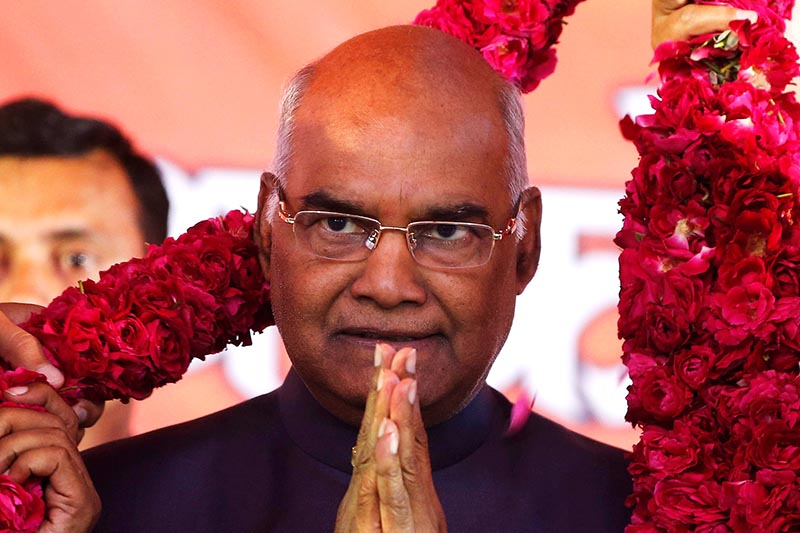India's BJP-backed candidate Kovind wins presidential election
NEW DELHI: Ram Nath Kovind, a low-caste politician backed by the ruling coalition, won India's presidential election on Thursday, tightening the governing alliance's hold on positions of power.
India's constitution provides a largely ceremonial role for the president, with the prime minister and his cabinet colleagues holding executive power.
But the president has a key role during political crises, such as when a general election is inconclusive, by deciding which party is in the best position to form a government.
Kovind, 71, gained an overwhelming majority to beat Meira Kumar, also a low-caste Dalit candidate, who was backed by the centrist Congress party.
Votes from 4,896 lawmakers in state assemblies and parliament were counted in parliament to elect the constitutional head.
"Kovind has secured a clear majority," said election officer Anoop Mishra. "I duly declare him as the president of India."
Kovind's ascent to the highest public office is the first for a leader reared in the powerful Hindu revivalist Rashtriya Swayamsevak Sangh (RSS) or National Volunteers' Association, the ideological mentor of Hindu groups.
Prime Minister Narendra Modi himself was associated early in his career with the RSS, which has long propagated a vision of India that puts the country's majority Hindus first.
Kovind's victory caps a series of top appointments by Modi, strengthening the grip of the Hindu right on public offices, such as governors, state chief ministers and the heads of universities.
Prior to his appointment Kovind said he was committed to upholding India's secular democratic constitution.
"I respect the Indian constitution and no political interest can be above the rule enshrined in the rule book," Kovind, a lawyer and former governor of the eastern state of Bihar, told Reuters this month.






